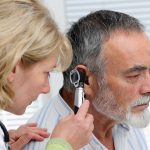A report launched today presents new data to show not only the predicted growth in the number of people with hearing loss, which is set to account for almost 20% of the total population by 2031, but also highlights a £25 billion loss to the UK economy in potential economic output.
The International Longevity Centre–UK – the leading think tank on ageing and longevity – set up an independent Commission to examine why, with the widespread acceptance of an ageing time bomb, hearing loss remains on the sidelines for both the general public and politicians and what the cost will be to our society, if we fail to take action.
 Baroness Greengross, Chief Executive of the ILC-UK and Chair of the Commission, said: “Since the 1990s there has been a steady rise in the number of people with hearing loss and this is only set to get worse – if we look into the future, there will be more older people and unfortunately many of them will experience hearing loss.
Baroness Greengross, Chief Executive of the ILC-UK and Chair of the Commission, said: “Since the 1990s there has been a steady rise in the number of people with hearing loss and this is only set to get worse – if we look into the future, there will be more older people and unfortunately many of them will experience hearing loss.
“If we consider that while loud rock music and festivals may have contributed to hearing loss among the baby boomers, iPod and other such devices may well pose an even greater danger to the next generation.”
This report builds on the evidence that highlights the profound individual, family and societal consequences of hearing loss.
We know hearing loss compounds social isolation and loneliness, particularly for older people and can act as a barrier for socialising with family and friends, employment and other recreational activities.
We also know that unlike sight loss, many people do not ever, or wait far too long, to get their hearing checked. On average, people wait 10 years – that is 10 years of potentially not hearing your loved ones and friends properly, or being able to enjoy your favourite TV programme.
Paul Breckell, Chief Executive of charity Action for Hearing Loss and a Commissioner said:
“For far too long, hearing loss has lost out in the hierarchy of other health conditions, but we can no longer ‘afford’ to ignore the individual, economic and societal cost of hearing loss. One lady who gave evidence at the Commission said “We need to add life to years, not simply years to life”.
‘We also know, with ever increasing financial pressures, some Clinical Commissioning Groups may be tempted to cut back on non–acute NHS services – North Staffordshire CCG is currently consulting on whether to remove free NHS hearing aids to those who have mild to moderate hearing loss. This is completely unacceptable”
The Commission has made a series of recommendations including calling on the Government to publish and deliver on a long awaited Action Plan on Hearing Loss




